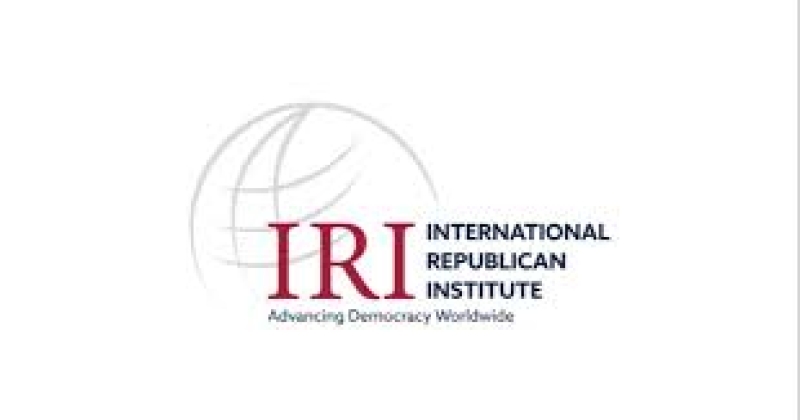- Hurricane Melissa: UN Appeals $74M to Aid 2.2M in Cuba |
- Doha Summit Stresses Urgent Investment in People and Peace |
- Sand syndicates tighten grip on Bangladesh's northern region |
- Prof Yunus orders security forces to hunt down Ctg attackers |
- IU suspends 3 students for assaulting journos, warns 9 others |
IRI urges dialogue to build trust before Bangladesh vote

The US-based International Republican Institute (IRI) has observed that while Bangladesh’s Election Commission and the Interim Government have taken commendable steps to enhance electoral credibility and ensure transparent election administration, maintaining public trust will require consistent communication and ongoing engagement with political and civic stakeholders.
The IRI, an organisation dedicated to promoting freedom and democracy worldwide, deployed a pre-election assessment mission from October 20 to 24 to examine Bangladesh’s evolving political and electoral landscape ahead of the expected February 2026 parliamentary elections.
The polls will mark the first major test of the country’s democratic transition following the July 2024 student-led protests and the formation of the interim government.
This impartial assessment highlights the progress of the interim government’s reform agenda, including the creation of 11 reform commissions, renewed inter-party dialogue and broad consultations on the July National Charter, a comprehensive framework of 84 proposals addressing nearly every aspect of Bangladesh’s democratic architecture, the IRI said in a statement on November 5.
It noted that disputes over the Charter’s sequencing, referendum timing, and enforcement mechanisms underscore the challenges of building a broad-based political consensus.
Political parties, the IRI observed, are actively shaping the transition by participating in reform dialogues and undertaking early electoral preparations such as candidate recruitment.
Yet, they must continue strengthening internal structures, increasing responsiveness to citizens, and rebuilding public trust to foster meaningful political competition.
The Institute said civil society organisations have re-emerged as key actors in promoting transparency and civic participation.
Expanding civic space and ensuring that the media, watchdog groups, and grassroots movements can operate freely will be essential to sustaining reform momentum and public confidence.
The assessment provides a non-partisan analysis of these dynamics, identifies key risks to electoral integrity, and offers actionable recommendations to support credible and peaceful elections as Bangladesh enters a new phase of democratic renewal.
Statement of Findings and Recommendations
The IRI conducted its pre-election assessment mission in Bangladesh from October 20–24, 2025, ahead of the expected February 2026 parliamentary elections.
The mission, composed of international policy and election experts, met with a broad spectrum of stakeholders, including the Election Commission, political parties, interim government officials, and civil society representatives, to evaluate the electoral environment and prospects for democratic renewal.
The interim government, led by Prof Muhammad Yunus, has launched an ambitious reform agenda through 11 commissions and the National Consensus Commission, culminating in the July National Charter, a framework of 84 proposals addressing nearly every aspect of Bangladesh’s democratic architecture.
While the Charter has been broadly endorsed, its implementation remains uncertain due to procedural ambiguities and divergent party positions on timing and enforcement.
The Election Commission has introduced reforms to enhance participation and operational preparedness, including mechanisms for out-of-country voting.
To strengthen election security, it plans to integrate the armed forces into the election security framework.
Despite these efforts, the pre-election environment remains fragile, with isolated yet politically significant episodes of violence, questions about the neutrality of local officials, and lingering distrust of security forces.
The emergence of youth-led parties and the anticipated high turnout of first-time and diaspora voters signal a potential shift in political engagement and underscore the continued influence of youth activism on Bangladesh’s democratic renewal.
However, challenges persist — candidate selection processes within political parties lack transparency, women remain underrepresented, and concerns are mounting that the growing appeal of extremist and hardline groups could embolden intolerant narratives and undermine Bangladesh’s secular political foundations.
The trajectory of the July National Charter and the extent to which political parties institutionalise democratic norms, including those advanced by the student movement, will determine the direction of Bangladesh’s democratic transition.
As Bangladesh moves toward the expected February elections, the coming months will reveal whether the promise of the post-uprising reform movement can be institutionalised through credible and peaceful polls.
The interim government’s success will depend on its ability to maintain neutrality, ensure security, and advance the National Consensus Commission’s reform agenda towards tangible implementation.
The July National Charter provides a blueprint for democratic renewal, but much of its realisation will rest on the next parliament’s political will.
Sustained dialogue, transparent election administration, and credible participation by political parties will be essential to mitigate polarisation and reinforce confidence in the transition.
The IRI pre-election assessment mission held 21 meetings with 59 stakeholders, including representatives from political parties, the Interim Government, the Election Commission, the media, international organisations, and civil society, and expressed gratitude to all who shared their insights, reports UNB.

